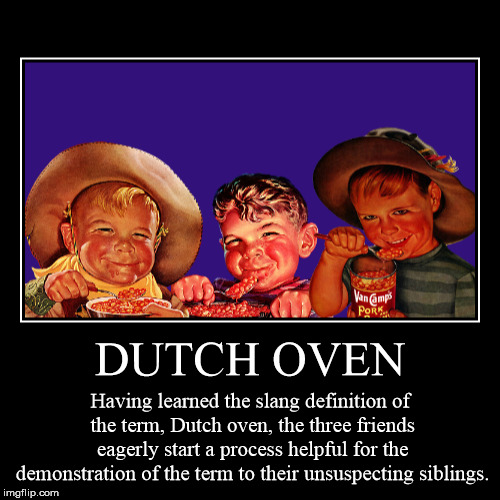Alright folks, let’s talk about Dutch oven slang—yes, you heard me right! If you’ve ever wondered what makes this heavy-duty cooking tool so special or why people go gaga over it, you’re in the right place. Whether you’re a seasoned chef or a total kitchen newbie, this article will help you decode the mysterious world of Dutch oven slang. It’s time to get your apron on and dive into the nitty-gritty of this iconic kitchen essential!
Now, before we get into the juicy details, let’s set the stage. A Dutch oven isn’t just some random pot you pull out when you’re feeling fancy. It’s a game-changer in the culinary world, and trust me, once you start using one, you’ll never look back. From braising to baking, this versatile piece of cookware can handle it all. So, buckle up because we’re about to take you on a journey through the land of Dutch oven slang!
But why slang, you ask? Well, it’s not just about the tool itself—it’s about the culture that surrounds it. Cooks and foodies alike have their own way of talking about Dutch ovens, and understanding their lingo can make you feel like part of the club. So, whether you’re a pro or just starting out, this guide will help you speak the language of the Dutch oven community. Let’s get to it!
Read also:Video Sexy Picture
What Exactly is a Dutch Oven?
Let’s start with the basics. A Dutch oven is essentially a heavy, lidded cooking pot that’s usually made from cast iron or enamel-coated cast iron. It’s designed to retain heat and moisture, making it perfect for slow-cooking, braising, and even baking bread. But don’t let its simple design fool you—this little powerhouse is capable of some seriously impressive culinary feats.
Now, when we talk about Dutch oven slang, we’re not just talking about the tool itself. We’re also talking about the way people refer to it, the techniques they use, and the tips they share. For example, you might hear someone say, “I slow-cooked this brisket in my trusty DO,” where DO stands for Dutch oven. See how the lingo starts to form? It’s all about making things easier and more fun!
Why is Dutch Oven Slang Important?
Understanding Dutch oven slang is like having a secret handshake with the cooking community. It’s a way to connect with other enthusiasts and show that you’re in the know. Plus, it can make cooking more enjoyable when you’re using terms that resonate with others who share your passion.
For instance, instead of saying, “I baked this bread in my Dutch oven,” you might hear someone say, “I gave this loaf a good DO treatment.” See how that adds a little flair? It’s not just about the cooking—it’s about the experience and the community that surrounds it.
The History Behind Dutch Oven Slang
The term “Dutch oven” has been around for centuries, and over time, it’s developed its own set of slang terms. Back in the day, Dutch ovens were used by pioneers and campers who needed a reliable way to cook over an open flame. As the tool evolved, so did the language surrounding it.
Today, you’ll find all sorts of slang terms related to Dutch ovens, from “lid lifter” (a tool used to remove the lid) to “pre-seasoning” (the process of preparing a new Dutch oven for use). Each term tells a story about the history and culture of this iconic cookware.
Read also:Aswad Ayinde
Common Dutch Oven Slang Terms
Ready to dive into the world of Dutch oven slang? Here’s a list of some of the most common terms you’ll encounter:
- DO: Short for Dutch oven, this is the go-to abbreviation for enthusiasts.
- Lid Lifter: A tool used to safely remove the heavy lid of a Dutch oven.
- Pre-Seasoning: The process of preparing a new Dutch oven for cooking by applying a layer of oil and baking it.
- Slow Cooker: Often used interchangeably with Dutch oven, especially when talking about slow-cooking techniques.
- Cast Iron Whisperer: A term for someone who’s particularly skilled at cooking with cast iron.
These terms might seem simple, but they carry a lot of meaning in the cooking community. Knowing them can make you feel like part of an exclusive club!
Breaking Down the Slang
Let’s take a closer look at some of these terms. For example, the “lid lifter” might sound like a funny name, but it’s actually a crucial tool for anyone working with a heavy Dutch oven. Trying to lift that lid without the right tool can be a recipe for disaster!
Then there’s “pre-seasoning,” which is an essential step for anyone new to Dutch ovens. Without proper seasoning, your food might stick to the pot, and no one wants that. It’s all about creating a non-stick surface that will last for years.
How to Use Dutch Oven Slang in Everyday Cooking
Now that you know the lingo, how do you use it in your everyday cooking? It’s all about incorporating these terms into your conversations and recipes. For example, if you’re sharing a recipe for a slow-cooked pot roast, you might say, “This recipe works best in a DO with a good pre-seasoning.” See how that works?
Another tip is to use these terms when asking for advice or sharing tips with other cooks. If you’re not sure how to handle a particular technique, you can ask, “What’s the best way to use a lid lifter without breaking it?” It’s all about creating a dialogue with the cooking community.
Tips for Mastering Dutch Oven Slang
Here are a few tips to help you master Dutch oven slang:
- Start by using the most common terms, like DO and lid lifter.
- Gradually incorporate more advanced terms as you become more comfortable.
- Don’t be afraid to ask questions if you’re not sure what a term means.
Remember, the goal is to make cooking more fun and engaging. So, don’t worry too much about getting everything perfect right away. Just enjoy the process!
Benefits of Understanding Dutch Oven Slang
Understanding Dutch oven slang can have a lot of benefits beyond just sounding cool. For one, it can help you connect with other cooks and share tips and tricks. It can also make reading recipes and cooking blogs easier, since you’ll be familiar with the terminology.
Plus, knowing the lingo can make you more confident in the kitchen. When you understand the terms and techniques associated with Dutch ovens, you’ll be able to tackle more complex recipes and experiments. Who knows? You might even discover a new favorite dish in the process!
The Role of Dutch Oven Slang in Modern Cooking
In today’s world of social media and food blogging, Dutch oven slang plays a bigger role than ever. Cooks and foodies use these terms to connect with their audience and share their passion for cooking. Whether it’s through Instagram captions or YouTube video titles, slang is everywhere in the cooking world.
So, if you’re looking to grow your presence in the culinary community, learning Dutch oven slang is a great place to start. It’s a way to show that you’re knowledgeable and engaged with the latest trends in cooking.
Common Misconceptions About Dutch Oven Slang
There are a few misconceptions about Dutch oven slang that we should clear up. For one, some people think that using slang makes you sound less professional. But that couldn’t be further from the truth! In fact, using slang can make you sound more approachable and relatable.
Another misconception is that you need to know every single term to be considered a good cook. That’s simply not true. Start with the basics and build from there. The most important thing is to enjoy the process and have fun with it!
Debunking the Myths
Let’s debunk a few more myths while we’re at it. Some people think that Dutch oven slang is only for experienced cooks, but that’s not the case. Anyone can learn the lingo, regardless of their skill level. And don’t worry if you make a mistake—everyone starts somewhere!
Another myth is that using slang will alienate people who aren’t familiar with it. But again, that’s not true. Most people appreciate when someone takes the time to explain a term or technique. It’s all about creating a welcoming environment where everyone feels included.
Conclusion: Embrace the Slang and Enjoy the Journey
Well, there you have it—the ultimate guide to Dutch oven slang. Whether you’re a seasoned pro or just starting out, understanding the lingo can make cooking more fun and engaging. From DO to lid lifter, these terms are your ticket to the world of Dutch oven enthusiasts.
So, what are you waiting for? Dive into the world of Dutch oven slang and start connecting with other cooks. Share your favorite recipes, ask for advice, and most importantly, have fun with it! And don’t forget to leave a comment or share this article with your friends. Who knows? You might just inspire someone else to join the Dutch oven community!
Table of Contents
- What Exactly is a Dutch Oven?
- Why is Dutch Oven Slang Important?
- The History Behind Dutch Oven Slang
- Common Dutch Oven Slang Terms
- Breaking Down the Slang
- How to Use Dutch Oven Slang in Everyday Cooking
- Tips for Mastering Dutch Oven Slang
- Benefits of Understanding Dutch Oven Slang
- The Role of Dutch Oven Slang in Modern Cooking
- Common Misconceptions About Dutch Oven Slang


